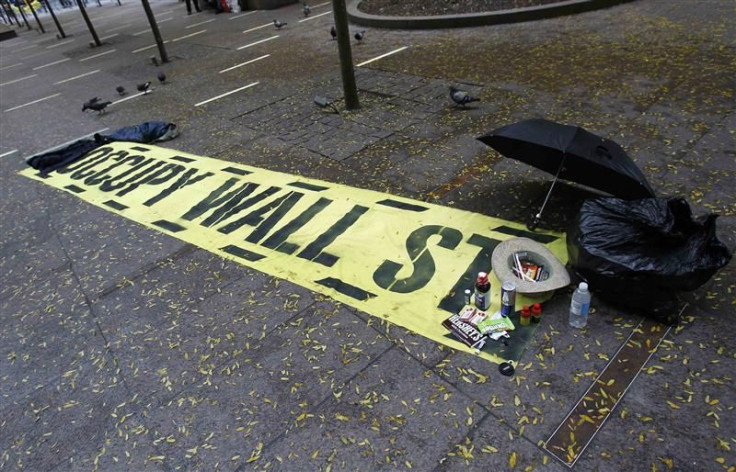Occupy Wall Street: After the Occupation, What Will Happen to Supplies, Money?

On Monday evening, before police swept into Zuccotti Park and dismantled Occupy Wall Street's encampent, protesters convened a meeting of a new decision-making body intended to streamline the movement's daily logistics.
A debate had emerged within the movement over how to efficiently allocate the money and provisions that flowed in regularly.
Many complained the General Assembly, an all-inclusive process in which anyone could air a grievance or raise a topic, had become too cumbersome for the specified working groups seeking money from the movement's general fund for necessities like clean laundry or sanitation supplies.
The resultant decision to create a spokescouncil, in which operational working groups tasked with logistical duties nominated representatives, proved to be contentious. Some worried that the movement's non-hierarchical structure could be compromised.
It's an interesting debate as to what is essential logistical work, Liesbeth, a member of the press working group, said at the time. It's not about who's essential, it's about whose work is essential to day-to-day functioning.
With the occupation halted, those concerns have been eclipsed by more pressing questions about the movement's future. Protesters stressed after the raid that the Occupy Wall Street's message of correcting economic injustice, not the physical occupation of Zuccotti Park, was the point. Massive protests on Thursday marking Occupy Wall Street's two-month annniversary seemed to validate that point, demonstrating its ability to sustain itself without a 24-hour occupation.
But there's still a question of what to do with a general fund that, as of mid-October, contained more than $450,000.
According to a balance sheet released by the movement's finance working group, the movement spent only a small fraction of the donations pouring in, and the majority of spending went toward expenses like comfort and park supplies, that for the time being don't exist.
How much we were spending relative to what was coming in what was pretty small, and that was the reason we were starting to accrue a significant balance, said Jeff Smith, a member of the press working group, who noted donations were largely unsolicited.
I look at that as a good problem to have, or if not a good thing it was at least unique in that we were the only organization I can think of that has more trouble spending money than raising it.
Smith said the money could be used to resupply or keep the movement going, but he noted uncertainty surrounding how the movement will proceed -- whether it'll claim a new space to occupy, for instance -- made it difficult to predict how the money might be spent.
Occupy Wall Street has, for the most part, disavowed politics, and Smith said he personally was wary of seeing the general fund as a war chest.
I think there's probably going to be continued talks about how we can perhaps use this money to better coordinate and fund other movements around the country, because obviously we got a disproportionate money coming into the New York occupation, Smith said. It might also be good to have this money as a contingency plan.
Many of the donations to Occupy Wall Street came in the form of supplies like food, hygiene products and clothing.
A room in the United Federation of Teachers building that serves as the movement's warehouse contains shelves stocked with provisions that include cans of soup, oatmeal, toilet paper, toothbrushes and handwarmers. Six multi-tiered shelves were bulging with coats, sweaters and long-sleeved shirts.
Chris Mapp, a member of the shipping, inventory and storage working group, was keeping watch over the area. He said that before the police raid, the General Assembly had decided to donate some of its surplus of supplies to occupations in other cities and to New York City institutions such as homeless shelters. But the raid wiped out much of the surplus, he said, and it was unclear who'd receive the supplies that remained.
People are meeting and talking, he said. That's where it's at.
© Copyright IBTimes 2024. All rights reserved.





















